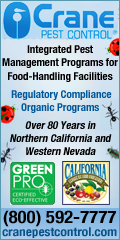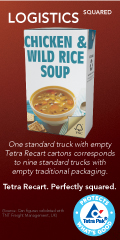Regulatory Changes to AB 32 Implementation
 Print this Article | Send to Colleague Print this Article | Send to Colleague
On October 25, 2013, the California Air Resources Board (CARB) met to discuss proposed amendments to the AB 32 Cap-and-Trade Program. The Board considered staff recommendations to both the Mandatory Reporting Rules and the Cap-and-Trade regulation and voted on resolutions (Res. 13-43 and Res. 13-44, respectively) both of which provide direction to the Executive Officer and CARB Staff on issues to be revisited. An updated Resolution, which will reflect the issues discussed at the end of the Board meeting, will be posted within the next two weeks.
CARB staff presented the following proposed changes of significance to food processors:
- Industry Assistance Extension
- True-up allowances
- Product-based benchmarks
- Post-2020 cap and trade program and cost containment plans
- Information Disclosure for Trading
- New Product definitions
None of the above issues were included in the either of the Resolutions or the Board discussion following public comment and therefore should not be considered for changes by staff.
Industry Assistance Extension through 2017
In its recommendations, staff has proposed that there be no change in allowance allocation for obligated entities through 2017. Essentially, facilities would continue to receive the same amount of free allowances in the second compliance period as received in the first 100 percent. The Board appeared supportive of the proposed changes but environmental groups and the environmental justice community expressed opposition to the extension of industry assistance, labeling it "windfall profits."
Though the Board did not vote to approve the staff proposal, the issue of industry assistance extension was not made part of the Board Resolution (13-44). Therefore, staff will not revisit the item and it will not be subject to any changes in any forthcoming 15-day change notices. However, staff can make "technical" changes (typos, description errors) without public input. CLFP will be keeping a close eye on any such changes and will continue to lobby the CARB Board members to support the industry assistance factor.
True-up Allowances
CARB staff also proposed the use of True-up allowances. The purpose of the product-based benchmark true-up provisions will allow the use of a future vintage allowance to cover a past compliance obligation. The true-up allowances are being issued to cover production increases by facilities during the first compliance period subject to the energy-based benchmark.
Product-Based Benchmarks
Staff identified a number of sectors that will receive the new or amended product-based benchmarks. These included tomato, chicken, dehydrated flavors, dairy, pistachio, almond, snack chips, juice and spirits, lead, and aluminum manufacturing. Work continues on the development of product-based benchmarks for food processors. Recent meetings with staff indicate that CARB expects the benchmarks for all sectors to be completed by April 2014 with an eye toward a Board vote in July 2014.
Post-2020 Program and Cost Containment Plans
CARB's resolution contains strong language in support of a post-2020 cap and trade program. CLFP and other industry stakeholders have been strongly opposed to CARB moving to extend the Cap-and-Trade program without clear authorization from the Legislature. Currently, there is disagreement whether AB 32 authorizes CARB to make changes to the Cap-and-Trade to meet more stringent emission reduction goals. Nevertheless, the CARB Board ordered the staff to develop a plan for a post-2020 Cap-and-Trade Program before the beginning of the third compliance period, beginning in 2018, citing the need for market certainty and to address the need for a 2030 emissions target. Stakeholder comments have been filed and workshop is scheduled to facilitate further discussion on what will be included in the update. CARB is expected to vote on the update in December.
The resolution also calls for a post-2020 cost-containment plan to be developed. Many speakers called for earlier development of a more comprehensive cost-containment plan. The Emissions Market Assessment Committee (EMAC) has scheduled a workshop for Thursday, November 14 and will address the cost containment issues.
Information Disclosure for Trading
Staff stated they needed more comprehensive information in order to keep monitoring the market appropriately. They will continue to work with stakeholders and this issue may also be something they provide a guidance document.
Finalizing Staff Proposals – Vote by the Board
CARB's intent is to work with stakeholders via workshops and meetings to further develop the draft regulations pursuant to the Board direction given in Resolutions 13-44 (Cap-and-Trade) and 13-43 (Mandatory Reporting Regulation). Once staff has addressed the issues, a 15-day notice will be issued on the proposed changes with the required comment period. CARB plans to adopt the amendments sometime in the first quarter of 2014. It is likely that some workshops will be scheduled before the end of the year. However, CARB staff does not expect any 15-day notices to be issued until the beginning of next year.
Given the breadth of the proposed changes the Board is not expected to provide a final vote until July 2014.
Article written by John Larrea, CLFP Government Affairs Director
Back to In the View Homepage
   
|



